Beyond Gender Equality: It’s time to re-think our priorities!
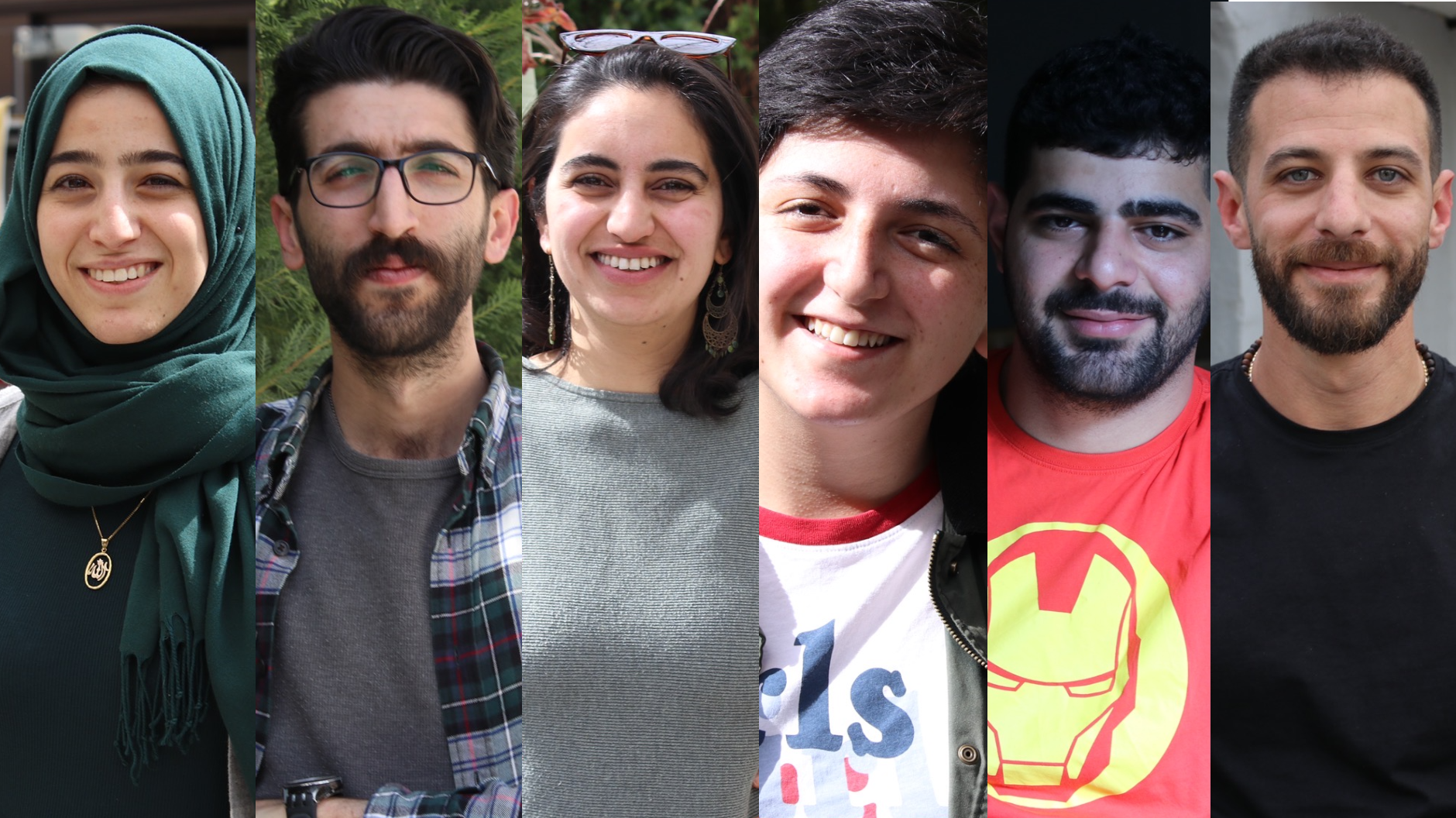
Looking back at my younger self, I remember feeling impressed and curious seeing female leaders, politicians, diplomats and economists who addressed the public or spoke in interviews. Ever since I was a child, I always looked up to such role models in society that were often underestimated on account of their gender, limiting them to stereotypical roles and behavioral patterns.
The younger me questioned, and maybe felt hesitant about, the terms “gender equality” and “female empowerment”as ones that brought about connotations of struggles, captivity, insecurity and conflict. As a teenager, I remember my head being full of questions like why do we as women, need empowerment? Why are men and women not equal? Why are there limitations to the freedoms of women in my society? With time, these questions grew into even bigger ones; How would our future look like?
Considering the shifting geopolitical conditions in the Arab world, I believe we need to stop and reflect on the effects of these changes and how they are affecting individuals in their daily lives, with a special look into the impact on women. The reality of the situation is that whether we are living in times of peace or times of war, women in the Arab world face agonizing conditions of inequality and marginalization of their efforts and abilities. For this reason, the sense of urgency for the work of every women’s rights defender, female empowerment specialist, and feminist activist in the MENA Region today is indisputably crucial, and must be prioritized. The strategies to address women’s rights need to be adapted to the changes of the dynamic times we are witnessing.
The Friedrich Naumann Foundation has been working in Jordan since 1984. During this history until today, we are partnering with diverse of female and male liberal leaders in the Jordanian society, who work and tackle a wide array of political, economic and social topics. On the occasion of International Women’s Day, we decided to discuss and get inspiration by learning about what young Jordanians think about this topic. We interviewed young males and females, who shared with me their views on what is needed for women to realize their full potentials today – for a future beyond gender equality and female empowerment efforts.
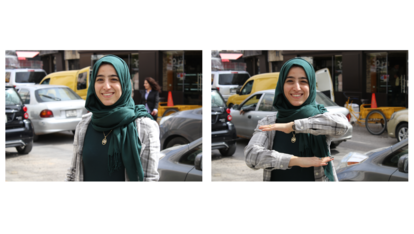
Ru'a
-Ru’a, self-described designer of places and processes, story-teller, and home-seeker
“The older I get, the more I appreciate the women in my life who mentored and supported me to grow. Because of them, I think that what we need as women is, more women in leadership positions. I think women have particular kind of leadership qualities like elemental compassion of nurturing, humility of cooperation that I think that we as women do better than our male counterparts. I think, with more women in leadership, the world will look different.”
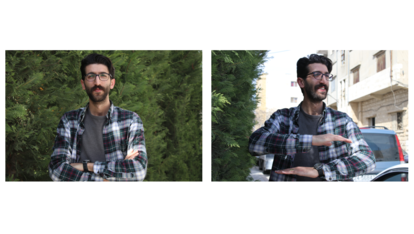
Ahmad
-Ahmed, independent dreamer
“I believe the limitations facing females in my country and in the region fundamentally exist on account of two main reasons. The first is people’s religious beliefs; it is a mixture of religion and what matches it from social customs and traditions. I see that our masculine society is just making use of false interpretations against women rights in Islam. Secondly, I think that the feminist movement in the Arab world is not efficiently working towards realizing women’s rights; battling with masculinity is not the right tool to realize women’s rights, it is a gradual process that needs to be more strategic.”
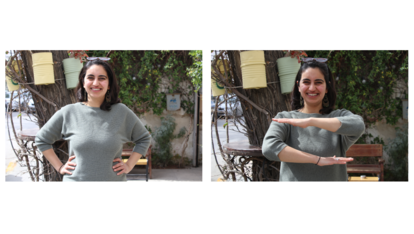
Marwa
-Marwa, self-proclaimed feminist foodie
“I think gender inequality is directly linked to the way we raise our kids. What we need to teach our kids is, to treat every person with respect based on empathy and how we would like to be treated. But also because gender inequality is a reality, there are other inequalities that are reality… so we need to teach our children to pay attention. Pay attention when there is something wrong or unjust. Pay attention when someone is treated differently because of the color of their skin, their nationality, or their religion, because of their gender; because all of these things are part of our identity and are part of the whole equality idea. Let your child know that no one should be treated differently because of who they are!”
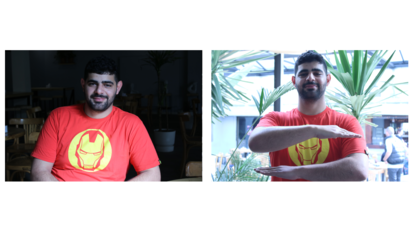
Hatem
-Hatem, self-described skeptic
“I think there is a clear stigmatization in the society. Many development organizations just care about quantity over quality to enroll big numbers of women to learn about political participation disregarding the fact that some of them might not be interested, which eventually deprive those who are really interested from seizing the opportunity. So first, targeting is important. Second, these organizations also need to amend or reform the laws that limit women’s economic or political participation effectively, like the motherhood law and the maternity leave policy.”
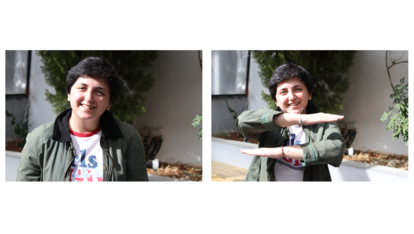
Majd
-Majd, self-defined social butterfly
“I tried to research for a very long time on where the attack on gender equality started, and I couldn’t find an answer. I personally and genuinely believe that men and women can be equal, but it is all about people’s state of mind, how they were raised, what they have been always hearing. There are a lot of women who need to be aware of their own rights, but we also need to educate men about what women can do. I think every human being should be allowed to freely do what s/he wants and be what he or she wants to be. We need to get rid of stereotypical images about masculinity and femininity.”
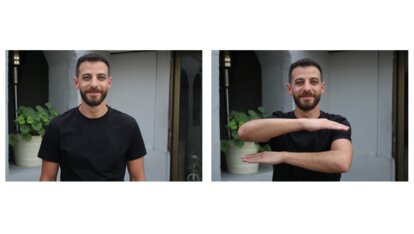
Mohammed
-Mohammed, happy househusband
“Our main problem is that people are following certain stereotypes that are so difficult to change. For women to flourish in business life is a hard task. In the Arab world, most business owners prefer to appoint male employees over females; not because men are better but they have the mindset that women will eventually get pregnant, will take more vacations. The society also does not accept that men can be happily freelancing or not working. In my case, my wife is the family provider, which was strange and not accepted by my parents at the beginning… it took time for them accept it. And life is beautiful.”
Talking to these interviewees sends a message that the way for Arab women to realize their rights to social, economic and political participation is still long and unpaved. Every effort to support this process counts and adds-on, but in my option, we need to be more strategic.
The International Women’s Day hashtag for this year is #EachforEqual serving as a reminder for every individual that nobody should be hindered because of their gender. These hurdles need to fall as they are only constructs found in the system and in minds.
At the Friedrich Naumann Foundation for Freedom, we empower males and females alike, with equal access to civic education, as a prerequisite for political participation. With our local partners and friends, we try find innovative solutions for big problems, and convenient answers for big questions.
The field of women empowerment is one of our Foundation’s topics of focus, which is specifically reflected through our campaign #FemaleForward. In Jordan, our strategy on this topic aims to support women who are interested in leadership in politics, business, economy and social change. We also work on raising the awareness of young females about the political and civic rights. And on this basis, more programs designed for especially young females are in the making; for which we invite you to follow our website and social media activity to learn more.